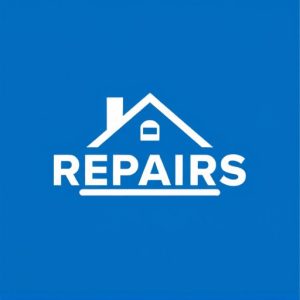Homeowners face various repair and maintenance challenges, from plumbing leaks and electrical issues to structural damage and HVAC systems. Minor problems like leaky faucets can be DIY fixes, but persistent clogs or faulty wiring require professionals. Regular inspections and preventive measures, such as gutter cleaning, prevent costly repairs. While DIY can save costs, complex tasks like plumbing or electrical work demand expert care for safety. Annual HVAC check-ups and prompt troubleshooting ensure efficient comfort systems. Effective home repair and maintenance combine DIY skills with professional expertise for a safe, well-maintained living space.
Navigating home repair problems can seem daunting, but understanding common issues and their solutions empowers homeowners. From persistent leaks and electrical glitches to structural cracks and heating malfunctions, this comprehensive guide covers essential repairs. We break down plumbing fixes, electrical troubleshooting, structural solutions, HVAC maintenance, and DIY tips. Learn when to tackle tasks yourself or when to call a professional for complex repairs, ensuring efficient home repair and maintenance.
- Plumbing Issues: Leaks, Clogs, and Common Fixes
- Electrical Troubles: Outlets, Switches, and Circuit Breakers
- Structural Problems: Foundation Cracks and Roof Repairs
- Heating & Cooling Systems: Troubleshooting and Maintenance
- Basic DIY Solutions for Common Home Repairs
- When to Call a Professional for Complex Repairs
Plumbing Issues: Leaks, Clogs, and Common Fixes
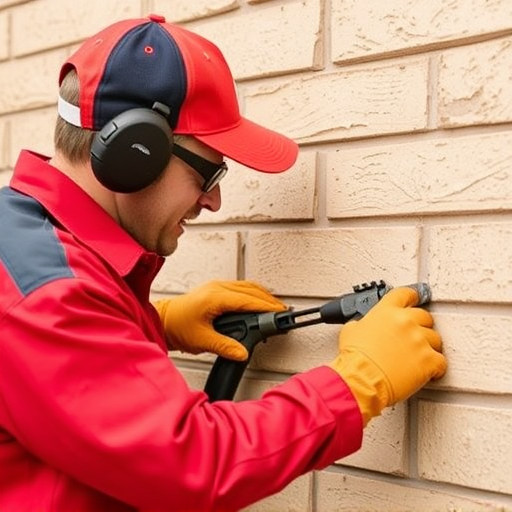
Plumbing issues are a common home repair problem, often leading to significant inconvenience and even water damage. Leaks, for instance, can range from small drippings to large gushers, caused by worn-out fixtures, loose connections, or broken pipes. Addressing leaks promptly is crucial for preventing escalated damage and unnecessary water waste. To fix a leak, homeowners can start with simple troubleshooting like tightening fittings or replacing washers. If the issue persists, it may require professional assessment to identify and repair the source of the leak.
Clogs are another frequent plumbing dilemma, blocking drains and leading to overflows. They can be caused by various items such as grease buildup, foreign objects, or tree roots intruding into pipes. Preventive measures like regular cleaning and maintenance can mitigate clogs. For immediate relief, using a drain snake or plunger can dislodge blockages. However, if the clog is persistent or severe, it’s advisable to call a plumber to avoid further damage to the plumbing system, ensuring effective and lasting solutions for home repair and maintenance.
Electrical Troubles: Outlets, Switches, and Circuit Breakers
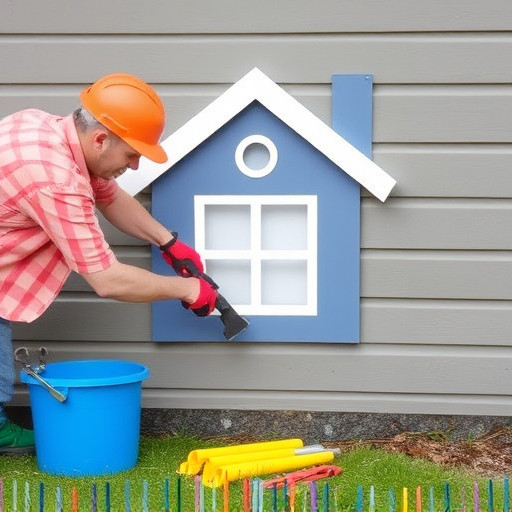
Many home repair issues revolve around electrical systems, which can be both common and complex. One of the most frequent problems homeowners encounter is faulty outlets, switches, or circuit breakers. These issues can range from minor inconveniences to significant safety hazards. For instance, a flickering light switch might indicate an overloaded circuit, while a tripped circuit breaker could signal a problem with wiring or a short circuit.
Fortunately, addressing electrical troubles is often within the reach of do-it-yourself enthusiasts. Simple fixes like replacing a burnt-out fuse or tightening loose connections can be tackled with basic tools and some knowledge of home repair and maintenance. However, for more complex issues such as outdated wiring or faulty installations, it’s crucial to consult professional electricians to ensure safety and prevent potential risks associated with electricity.
Structural Problems: Foundation Cracks and Roof Repairs
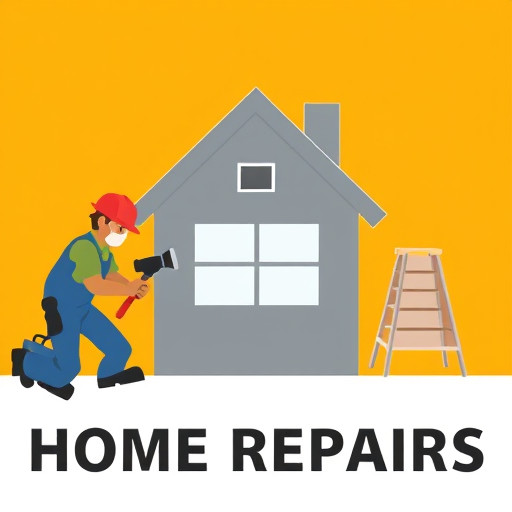
Home repair and maintenance are essential aspects of home ownership, especially when it comes to addressing structural issues early on. One of the most common concerns is foundation cracks, which can range from minor hairline fractures to significant structural damage. These cracks often appear due to shifting soil, poor initial construction, or changes in weather conditions, particularly extreme temperatures and frost. Homeowners should regularly inspect their foundations for any signs of movement or cracks and take prompt action to address them.
Roof repairs are another critical component of home maintenance. Over time, roofs sustain damage from harsh weather events like storms, heavy rain, snow, or high winds. Common roof issues include missing or damaged shingles, leaks, and structural weaknesses. Regular inspections can help identify these problems early, preventing further damage to the roof structure and interior of the home. Timely repairs ensure the longevity of the roof and maintain a safe and dry living space for homeowners.
Heating & Cooling Systems: Troubleshooting and Maintenance
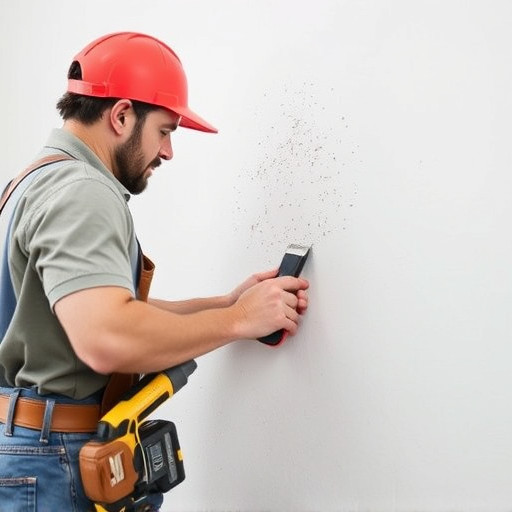
Heating and cooling systems are a significant aspect of home comfort, and issues with these systems can greatly impact your daily lives. Regular maintenance is key to ensuring optimal performance and longevity. Start by scheduling annual check-ups for your HVAC (heating, ventilation, and air conditioning) unit, allowing professionals to inspect for any wear and tear or potential problems. During these visits, they can clean or replace filters, check for leaks in refrigerant lines, and ensure the system is running efficiently.
If you experience issues like sudden temperature fluctuations, unusual noises, or a lack of heating/cooling, troubleshoot by checking common problem areas. For example, dirty or clogged filters can restrict airflow, so replacing them promptly may resolve such problems. Leaks in ducts or vents can also cause efficiency issues; sealing these areas can help maintain the desired indoor temperatures and reduce energy bills. Regular maintenance and quick troubleshooting will contribute to effective home repair and maintenance practices.
Basic DIY Solutions for Common Home Repairs
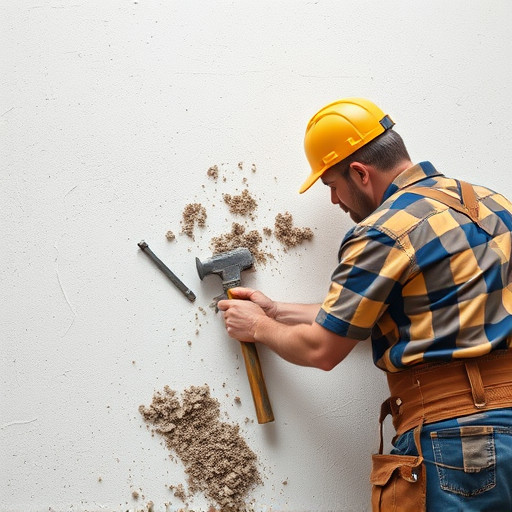
Many common home repair problems can be easily fixed with some basic DIY skills and the right tools. For instance, a leaky faucet is often a simple issue of replacing worn-out washer or seal, a task that doesn’t require specialized knowledge or equipment. Similarly, minor electrical issues like flickering lights or tripped circuits can usually be resolved by checking and tightening connections, or replacing faulty switches or outlets.
Home repair and maintenance isn’t just about fixing problems as they arise; it’s also about preventive care. Regular tasks like cleaning gutters, sealing cracks in foundations, and inspecting roof shingles can save you from more significant (and costly) repairs down the line. With a little know-how and some basic tools, homeowners can tackle numerous issues independently, saving time, money, and potentially preventing larger problems from developing.
When to Call a Professional for Complex Repairs
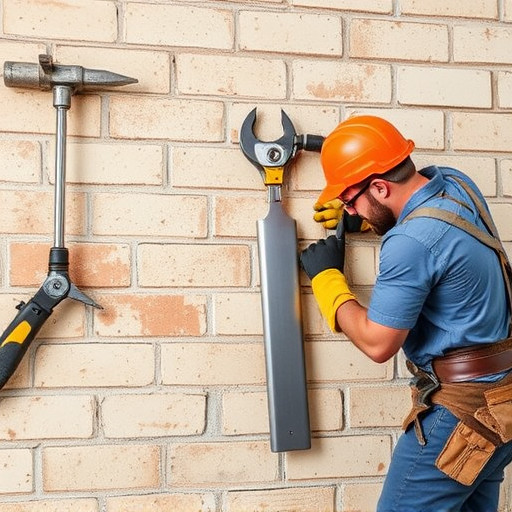
When tackling home repair and maintenance tasks, it’s important to know your limits. While many DIY enthusiasts enjoy the satisfaction of completing projects around the house, certain complex repairs may require the expertise of a professional. If you encounter issues that fall outside your comfort zone or involve specialized knowledge, it’s best to call in a pro. Plumbing problems, for instance, can range from simple leak fixes to intricate pipe replacements, and electrical work is always best left to licensed technicians due to potential hazards.
Instead of attempting these tasks yourself, reach out to qualified professionals who specialize in home repair and maintenance. They possess the tools, knowledge, and experience needed to diagnose and resolve complex problems efficiently. This ensures not only high-quality workmanship but also your safety and peace of mind.
By equipping yourself with knowledge of common home repair problems and their solutions, you take a significant step in ensuring effective home repair and maintenance. Whether it’s addressing plumbing leaks, electrical issues, structural cracks, or managing heating and cooling systems, understanding basic fixes can save time, money, and potential damage. Remember, while DIY projects can be rewarding, some tasks may require professional expertise. For complex repairs, don’t hesitate to consult specialists who can provide expert solutions tailored to your home’s unique needs.
